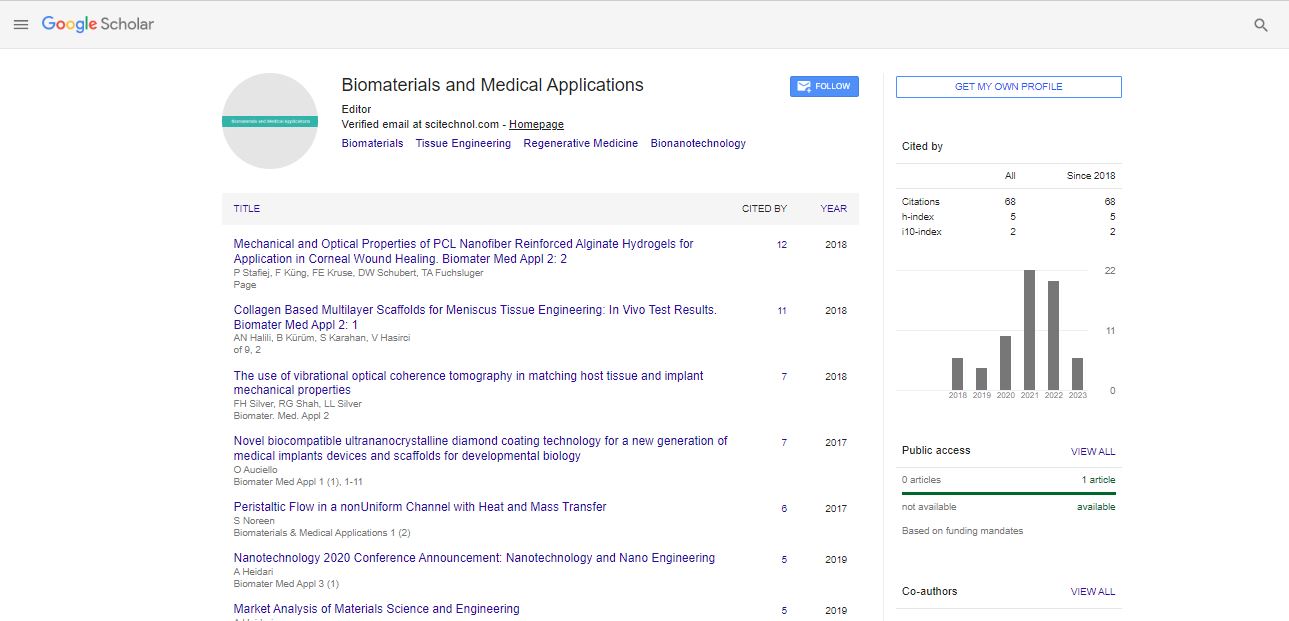Combining fused filament fabrication (FFF) and finite element modelling (FEM) for the optimisation of design and manufacturing process of a polycarbonate lumbar interbody implant
Provaggi E, Capelli C and Kalaskar D M
UCL Department of Nanotechnology, Division of Surgury and Interventional Science, United Kingdom
: Biomater Med Appl
Abstract
The study herein investigated the combined approach of fused filament fabrication (FFF) 3D printing and finite element modelling (FEM) to enhance design and manufacturing process of an anatomically shaped implant for lumbar interbody fusion1. A structural, thermal, and mechanical characterisation of polycarbonate porous parts fabricated with varying infill density (25%, 50%, 75%, 100%) and infill pattern (rectangular, honeycomb) was performed. The experimental results were used as input to model the optimal implant structure capable to withstand the maximum expected loads with the minimum material and production time consumption. Accordingly, the implant was subjected to a compressive axial load (1000 N) and a moment (15 Nm) simulating different physiological loading conditions. Positively, the thermal behaviour of polycarbonate was not affected by the FFF process. Compressive modulus values for all different infill parameters fell within the range of trabecular bone values (100-500 MPa)2. Remarkably, the porous structures fabricated with honeycomb pattern exhibited the lower dimensional error, as well as the highest compressive properties. Our results suggested that implants fabricated with 50% infill density and honeycomb infill pattern ensure a compromise between mechanical strength, material consumption (0.49 m) and printing time (7 min). Moreover, the combination of an outer vertical solid shell with a lowdensity infill potentially improves the mechanical stability of the implant by reducing high stress concentrations that could lead to implant failure. The approach proposed in this study can be implemented for the fabrication of low-cost bespoke lumbar interbody implants.
Biography
Provaggi E is a PhD fellow from University College London (UCL), United Kingdom. She has completed her MSc in Biomedical Engineering in 2015 with a strong background in Biomechanics and Biomaterials. She has published a review paper on “Applications of 3D printing in spinal surgery” and contributed to a book chapter in “3D Printing in Medicine”, Elsevier. She is also a contributing author to other publications in international reputed journals in the fields of biomaterials and microfluidics.
E-mail: elena.provaggi.15@ucl.ac.uk
 Spanish
Spanish  Chinese
Chinese  Russian
Russian  German
German  French
French  Japanese
Japanese  Portuguese
Portuguese  Hindi
Hindi 